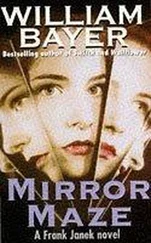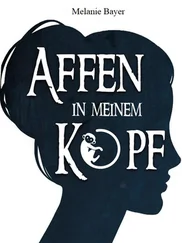William Bayer - Tangier
Здесь есть возможность читать онлайн «William Bayer - Tangier» весь текст электронной книги совершенно бесплатно (целиком полную версию без сокращений). В некоторых случаях можно слушать аудио, скачать через торрент в формате fb2 и присутствует краткое содержание. Жанр: Криминальный детектив, на английском языке. Описание произведения, (предисловие) а так же отзывы посетителей доступны на портале библиотеки ЛибКат.
- Название:Tangier
- Автор:
- Жанр:
- Год:неизвестен
- ISBN:нет данных
- Рейтинг книги:5 / 5. Голосов: 1
-
Избранное:Добавить в избранное
- Отзывы:
-
Ваша оценка:
- 100
- 1
- 2
- 3
- 4
- 5
Tangier: краткое содержание, описание и аннотация
Предлагаем к чтению аннотацию, описание, краткое содержание или предисловие (зависит от того, что написал сам автор книги «Tangier»). Если вы не нашли необходимую информацию о книге — напишите в комментариях, мы постараемся отыскать её.
Tangier — читать онлайн бесплатно полную книгу (весь текст) целиком
Ниже представлен текст книги, разбитый по страницам. Система сохранения места последней прочитанной страницы, позволяет с удобством читать онлайн бесплатно книгу «Tangier», без необходимости каждый раз заново искать на чём Вы остановились. Поставьте закладку, и сможете в любой момент перейти на страницу, на которой закончили чтение.
Интервал:
Закладка:
"How was that?"
"He was simply sitting, sweet as you please, at a front table in the Cafe de Paris. I went up to him, we shook hands, then I sat down and we began to talk. He wasn't wearing my watch, and he said nothing about what he'd done. We chatted about this and that, and he was absolutely normal-as I'd thought he was before. We had such a good time we went out to a couscous joint and continued chatting there. Then, afterward, we shook hands, and he went back to his place and I returned to mine. Why didn't I ask him about it? Or at least ask him to return my things? I don't know. It was very odd, and he was so correct, so charming, that I wondered if I'd dreamed the whole thing up. But there was this thin red line where he'd pressed the blade beneath my balls, and I knew I hadn't done that to myself. Later I told a few people-it was such an extraordinary experience, perhaps the most terrifying and extraordinary of my life."
"And you never went to the police?"
"No."
"Did you ever see your things again?"
Robin shook his head. "Lost. Completely lost. A few weeks later I bought myself a cheap Japanese watch."
"Was this boy a political type?"
"No. That's the point. None of his political talk made any sense. I think he was just filled with rage-the rage they all have against us every now and then-and he simply expressed it in this strange dual way, the knife (which is pure Moroccan) and this crazy rhetoric he'd heard and half understood from Europeans he'd met around the Socco."
"Fascinating! I'd like to meet him if that's possible."
"You know him already, I think."
"I do?"
"Sure. He's around Inigo all the time now. The queens all call him Pumpkin Pie."
Townes nodded and the two of them fell into silence. A few minutes later the others drifted out. They assembled on the lawn furniture, drinks and pipes in hand, while a servant passed bowls of olives and dates, and the conversation, which was intermittent, lapsed slowly with the afternoon.
"Soon," said Wax, "the summer will come, and we'll not be able to bear the heat."
"Parties," said Florence. "Parties. Parties. I wish it were summer now."
No further talk about the movie they'd seen, but it had induced a feeling of malaise. The Beaumonts sensed this too and sat curled, brooding with their pipes. After a while Herve got up to take a long walk along the cliffs above the sea.
At four o'clock Townes and Inigo excused themselves-they both, they said, had to return to work. Townes looked at him warmly as they shook hands. Robin decided to seek him out and talk to him again. As they left he was filled with the feeling that they were serious people and he was not. He had no doubt they were much more talented than himself-Inigo was probably a genius and Townes' books were good-but talent wasn't the point so much as waste: he knew that if he still had something to say he wasn't bothering to say it anymore.
He stayed until everyone had left-Wax off to Madame Porte's for his daily tranche of pate de foie gras, the Hawkins' for their afternoon ride, Claude de Hoag and Jean Tassigny to the Emsallah Tennis Club, where their matches were said to be a disguised erotic dance. Finally, when the Beaumonts had become impossibly uncommunicative, Robin decided it was time to leave himself. There was nothing to say to them anymore, not even any gossip to pick up. So he loaded his pockets from the bowls of food and made his way, against the sunset, down the Mountain to Tangier.
Eleven o'clock. He was sitting in the Centrale surveying the scene. The small-time hustlers, the ones who sold fake watches and third-rate hash, had long since disappeared. Now the big-time dudes were out, and a hard core of Anglo-American queers inspected the meat rack as it passed.
Darryl Kranker was sitting with a boy whom Robin had once known well. He was a dancer now-a teenage beauty who put on makeup, danced with a tray of candles on his head, and made passes at men sitting in the nightclubs on Avenue d'Espagne. Robin had known him when the boy was thirteen years old. He was the last of the ones he'd dressed in woolen shorts.
He had no idea where he'd acquired that obsession: perhaps at his Canadian boarding school, a strict, cold, damp, unhappy place. Somehow the image had infected his brain-sunlight glittering off shorts of the purest wool, worn by prepubescent boys whose leg hairs still were fair. He'd never been able to shake it off, and when he'd moved to Tangier he'd brought the dream to life. One winter he'd grubbed his way to London on a cheap charter out of Gib and bought a dozen pairs. These he'd put on his favorite boys-made them wear them when they were in his room. When he was alone he kept them tucked in the closet, to be brought out when he needed inspiration for his work. The habit was so odd he spent much time trying to analyze it-more, in fact, than he spent composing verse. In the end he gave up the boys-there'd been too many close calls with Hamid. The Inspector, he knew, would not hesitate to throw him out; despite their friendship it was the one vice he despised. And soon after that he got rid of the shorts too, sold them in the flea market for a few measly francs. He'd hoped that some Moroccan mother might buy them for her son, and then, at least, he'd have the pleasure of seeing them catch the sunlight around Tangier. It was a gamble that didn't pay off: he never saw the shorts again.
Still the image haunted him, no matter how hard he fought it off. It was sick, he knew, and he was afraid to yield to it again, fearing a fall so deep he'd never find his way out of the abyss. He'd decided to draw the line, and kept to his resolve, for it was one thing to revel in degradation and quite another to yield so completely that he'd be addicted the remainder of his life. This way, guarding it as a fantasy, he could maintain the balance of his mind. And he recognized that he sublimated in many ways, absorbing himself in gossip, becoming a raconteur.
Boys-mere children: though he lusted after them terribly, he repressed that desire now too. Better to imagine a young man as a boy, hold him in his arms and transform him in his mind, than to corrupt a child who deserved something better than to be used as a receptacle for a sick man's lust. Still it was difficult-he suffered over his fantasies and accumulated guilt.
He looked over at Kranker, seated at his table, his piercing eyes focused on the boy. Suddenly Robin was filled with envy. Kranker did what he wanted and never suffered a pang. Why couldn't he do the same? It was so hard to fight off desires, to immerse himself in the foolish gossip of Tangier, to care what Peter Barclay thought, or about the absurd antics of Patrick Wax. Sainthood! Martin Townes had been wrong about that, but Robin wished he'd been light. If only he could pass through the barrier that kept good and evil apart, become a true immoralist and leave the guilt, like a whiff of smoke, trailing behind him in the breeze. Then he could turn evil into a festival of joy and revel in the dirt.
Suddenly he hated Kranker, sitting there so guiltless, so steely and cold. He was an unattractive man who'd always had to pay his boys. He was horrible, a man who'd never known love and never would.
All of us in Tangier, he thought, live in our grubby little holes.
At that he stood up, stretched, then walked back to the Oriental, where he mounted the stairs, entered his shabby room, flung himself onto his bed, lit up a pipe, and dreamedof a boy flying a kite in a meadow, woolen shorts glowing in the light.
The End of Spring
On the last Sunday in May the weather in Tangier began to change. Gone were the chilly nights and the sparse rains of spring. The wind was finished for a while, and the sky, which had been blue since the previous autumn, began to haze. Summer was coming to the city. The proprietors of the restaurants that fringed the town beach prepared to open up, and all the seats in the cafe s on the Boulevard were filled.
Читать дальшеИнтервал:
Закладка:
Похожие книги на «Tangier»
Представляем Вашему вниманию похожие книги на «Tangier» списком для выбора. Мы отобрали схожую по названию и смыслу литературу в надежде предоставить читателям больше вариантов отыскать новые, интересные, ещё непрочитанные произведения.
Обсуждение, отзывы о книге «Tangier» и просто собственные мнения читателей. Оставьте ваши комментарии, напишите, что Вы думаете о произведении, его смысле или главных героях. Укажите что конкретно понравилось, а что нет, и почему Вы так считаете.












